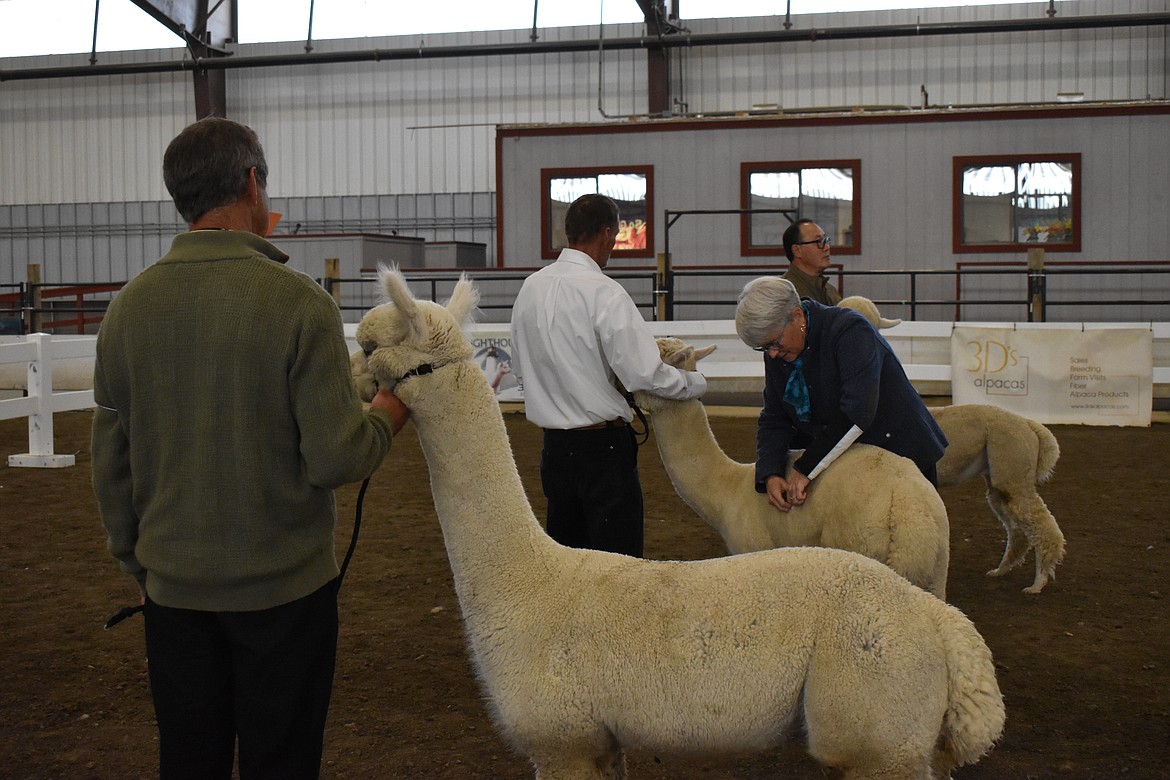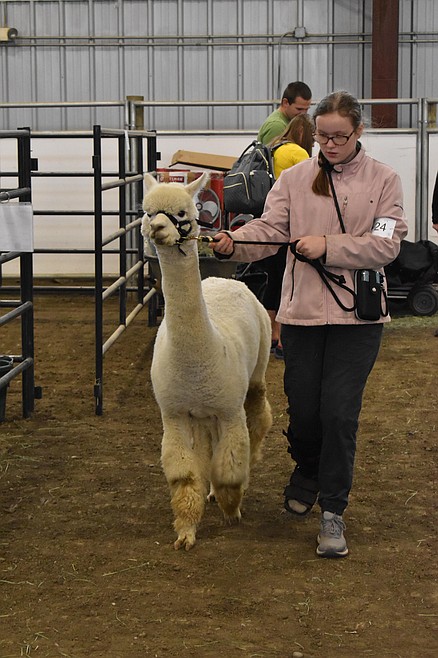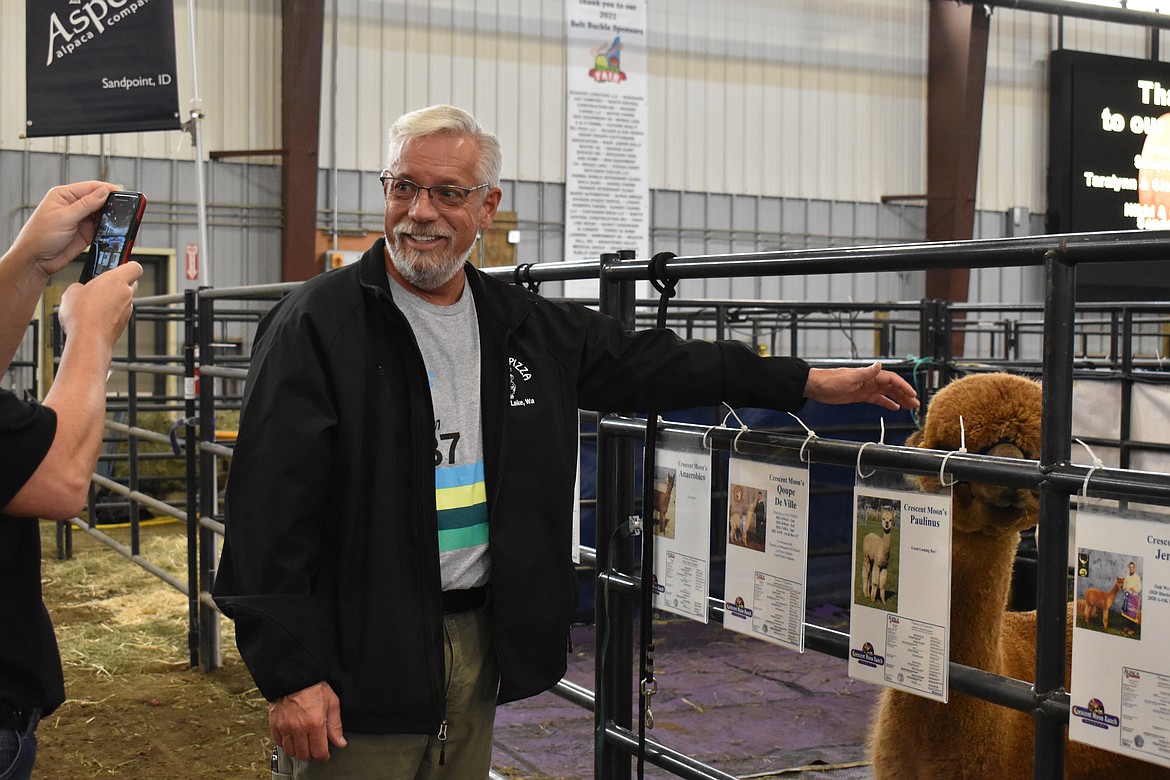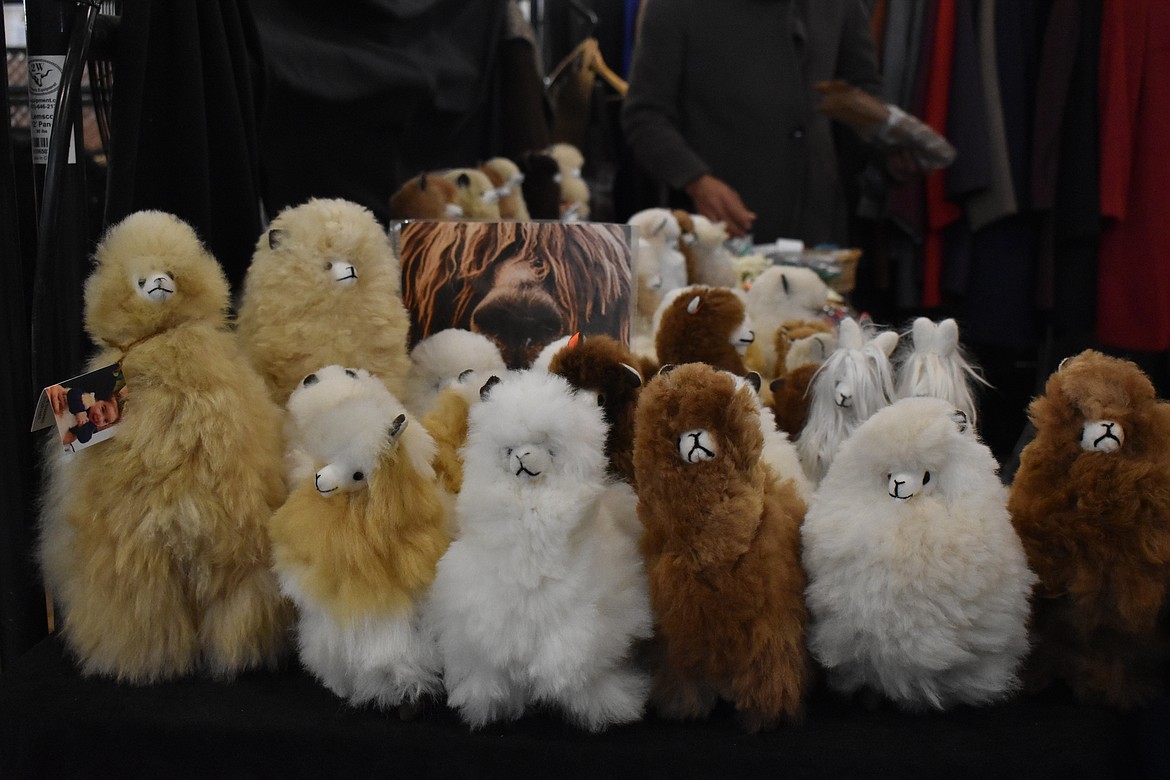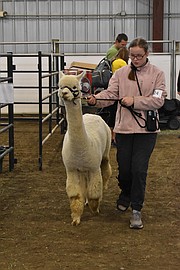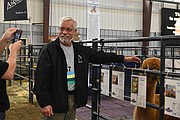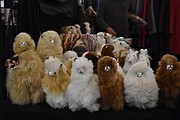A contest of wools: Alpacas hoof into Grant County Fairgrounds
MOSES LAKE — The Grant County Fairgrounds was the host of dual events Saturday and Sunday, the Northwest Alpaca Showcase and Alpacapalooza, filled with shows, alpacas and unique vendors.
The shows were by the Pacific Northwest Alpaca Association (PNAA) and Alpaca Association of Western Washington (AAWW) and put together to form the Alpaca Fest Northwest and bring everything alpaca to Moses Lake.
Friends Mitchell Zornes and Kelly Owens said they were looking for something fun to do over the weekend and saw the event on the Grant County website, so they decided to attend and see what it was all about.
Along with the showings, there was a silent auction of items, a herdsire auction for breeding, vendors, a photo contest and food. The event also provided sponsorship and networking opportunities for alpaca owners.
Stan Miller, owner of Aspen Alpaca Company out of Idaho, brought some of his alpacas to the event.
Alpacas come in more than 25 different natural colors, but Miller primarily breeds for the black colored alpacas. At his home in Idaho, Miller said he has about 35 alpacas.
Miller said he brings his alpacas to shows to network with other alpaca owners and to see how his alpacas measure up. He said it helps him know if his breeding program is producing the results he wants because at shows they judge on things such as the build and stature of the animals, as well as fur.
According to Miller, the biggest difference between alpacas and their distant cousin, llamas, is their use. Llamas are used primarily for packing and alpacas are used for their fur. Llamas also grow to be larger than alpacas. Despite their differences, alpacas and llamas are a part of the same family of camelids.
Alpaca fur is called fiber. It’s very fine and soft and can be used similarly to wool for yarn, and used in jackets and socks. It is also hypoallergenic. There is no national company or organization to send alpaca clippings to, Miller said, so each farm generally sends clippings to individuals who can turn it into yarn or other products to sell.
Miller explained while alpacas aren’t very high-maintenance from day-to-day care, they have specific routines that need to be followed each year. Alpacas’ fur is only sheared once a year, but must be cut to prevent matting and to make the animals more comfortable since their fur can get very thick and hot, Miller said. Alpacas’ gestation period is also 350 days long, so they have to pick a specific time window to breed them to have babies at the right point in the year.
Miller said he thinks the show will come back to Moses Lake again because the venue was perfect for what people needed. He also said fairgrounds staff were very welcoming and helpful throughout the process of setting up and running the event.
Rebecca Pettingill can be reached via email at rpettingill@columbiabasinherald.com.



